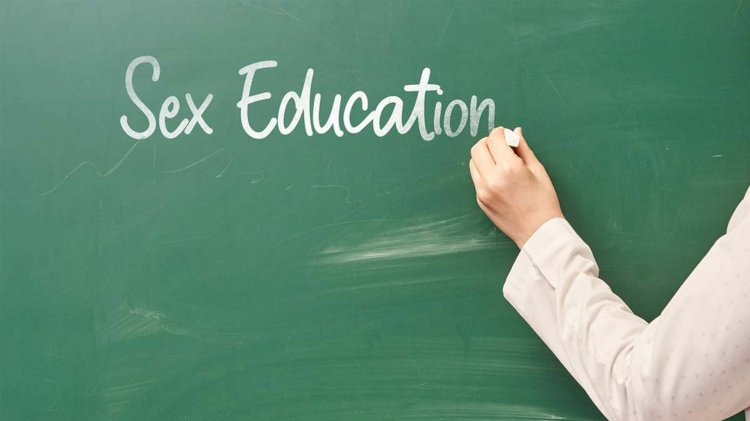Exploring the Unspoken: The Imperative of Sex Education in India
Explore the Vital Need for Sex Education in India - Unraveling Taboos and Empowering the Youth. Discover the Challenges, Progress, and Strategies for Effective Implementation. A Must-Read for a Healthier and Informed Generation

In India, a country steeped in a rich tapestry of traditions and cultures, the subject of sex education remains enshrouded in a deep silence, often relegated to the status of a societal taboo. However, beneath this veneer of reticence lies an issue of paramount importance, one with profound and far-reaching ramifications. Furnishing the burgeoning minds of the youth with precise and age-appropriate insights into matters of sexuality transcends mere moral considerations; it constitutes an essential stride towards advancing health, well-being, and informed decision-making for a generation grappling with the ever-evolving contours of the world.
The Significance of Sex Education in India
The absence of comprehensive sex education in India gives rise to a host of consequential problems:
- Escalating rates of STIs and HIV/AIDS: India carries the unenviable distinction of being home to the world's second-largest HIV burden, with many infections arising from a lack of awareness about preventive measures.
- Unwanted pregnancies and perilous abortions: Adolescent pregnancies are a prevalent issue, primarily stemming from misconceptions regarding contraception and safe sexual practices.
- Gender-based violence and sexual abuse: The culture of silence surrounding sexuality perpetuates misconceptions and fosters an environment in which instances of abuse often remain unreported.
- Mental health concerns: The bewilderment and disinformation surrounding matters of sexuality can give rise to anxiety, depression, and diminished self-esteem.
The Current Landscape: A Mosaic of Progress and Standstill
The terrain of sex education in India is characterized by fragmentation. While the national curriculum mandates its inclusion in grades 6-12, the actual execution varies significantly. Some states, such as Kerala and Tamil Nadu, have made substantial headway by incorporating age-appropriate content into biology and life skills classes. Conversely, states like Maharashtra and Madhya Pradesh have outright prohibited it, citing cultural and religious sensitivities. This lack of uniformity exposes millions of young individuals to misinformation and risky behaviors.
Overcoming Obstacles: A Necessity
Institutionalizing effective sex education faces considerable political and societal hurdles:
- Conservative social attitudes: Conventional moral values often equate sex education with the promotion of promiscuity, resulting in resistance from communities and religious factions.
- Shortage of adequately trained educators: Educators frequently lack the training and confidence to address sensitive topics, resorting to vague euphemisms or outright avoidance.
- Parental reluctance: Numerous parents remain uncomfortable discussing matters of sex with their children, thereby perpetuating the cycle of silence and misinformation.
Incorporating Sex Education into the Curriculum: A Path Forward
To surmount these challenges, several strategic measures can be implemented:
- Development of a comprehensive, age-appropriate curriculum: This should encompass subjects such as anatomy, puberty, consent, contraception, STIs, and the dynamics of healthy relationships, all tailored to the diverse age groups of students.
- Teacher training: Equip educators with the knowledge, skills, and confidence required to deliver sensitive topics effectively, while also addressing concerns from parents and communities.
- Engagement with parents and communities: Open and candid dialogues with parents and community leaders are pivotal in dispelling misconceptions and garnering support for sex education.
- Harnessing technology: Online resources and interactive platforms can provide a secure and accessible space for acquiring knowledge about sexuality.
Drawing Insights from Western Countries: Learning Lessons
Countries like the Netherlands, Sweden, and Germany have implemented comprehensive sex education programs over the years, leading to reduced rates of STIs, teenage pregnancies, and gender-based violence. Their success hinges on a fusion of factors:
- Commencing early: Sex education commences at a tender age, fostering a natural and non-judgmental approach to the subject.
- Fostering open dialogue: Communication about sex is normalized within families and educational institutions, establishing a safe haven for questions and concerns.
- Emphasizing life skills: The curriculum places emphasis on cultivating healthy relationships, enhancing communication skills, and fostering critical thinking regarding sexuality.
Conclusion: A Clarion Call for Action
Shattering the silence on sex education in India is not a choice; it is an unequivocal imperative. By placing comprehensive and age-appropriate education at the forefront, we can empower the youth to make informed decisions concerning their health, relationships, and futures. It is high time to transcend the realm of taboo and embrace sex education as a pivotal tool for nurturing a healthier, safer, and more enlightened generation. The era of silence has passed; the era of action is upon us.





































Dinesh
good content
Dinesh
hey
kapil7170
hey